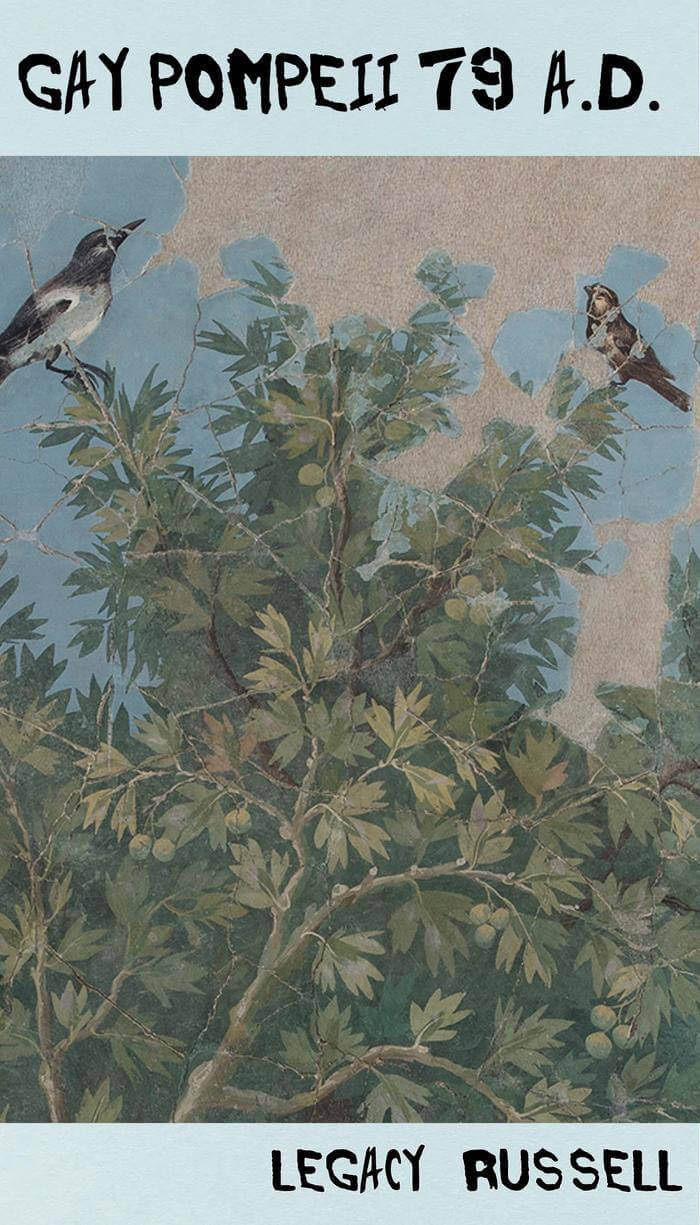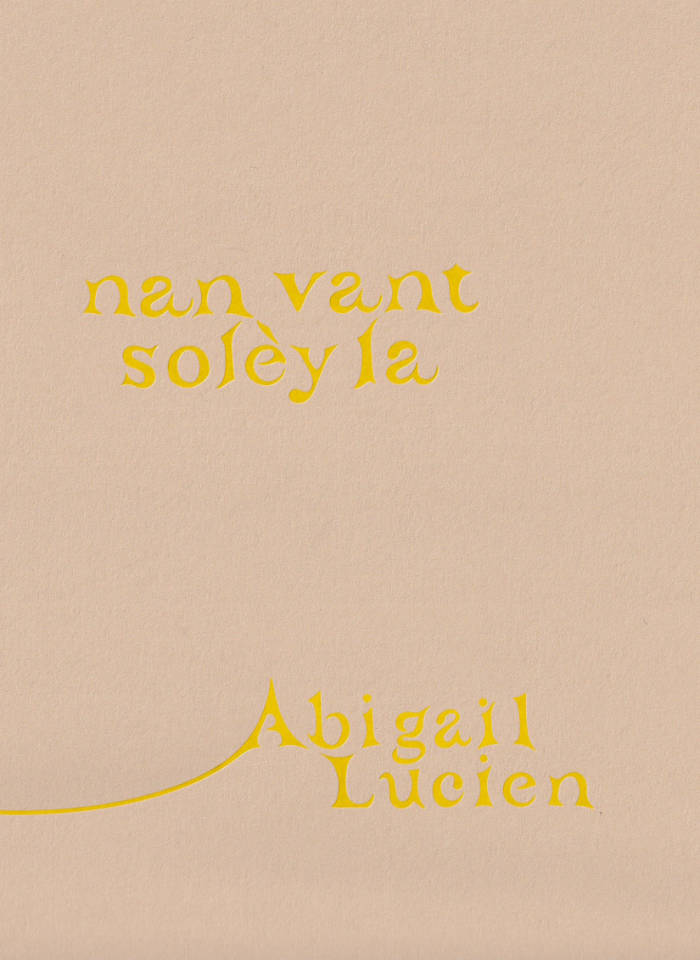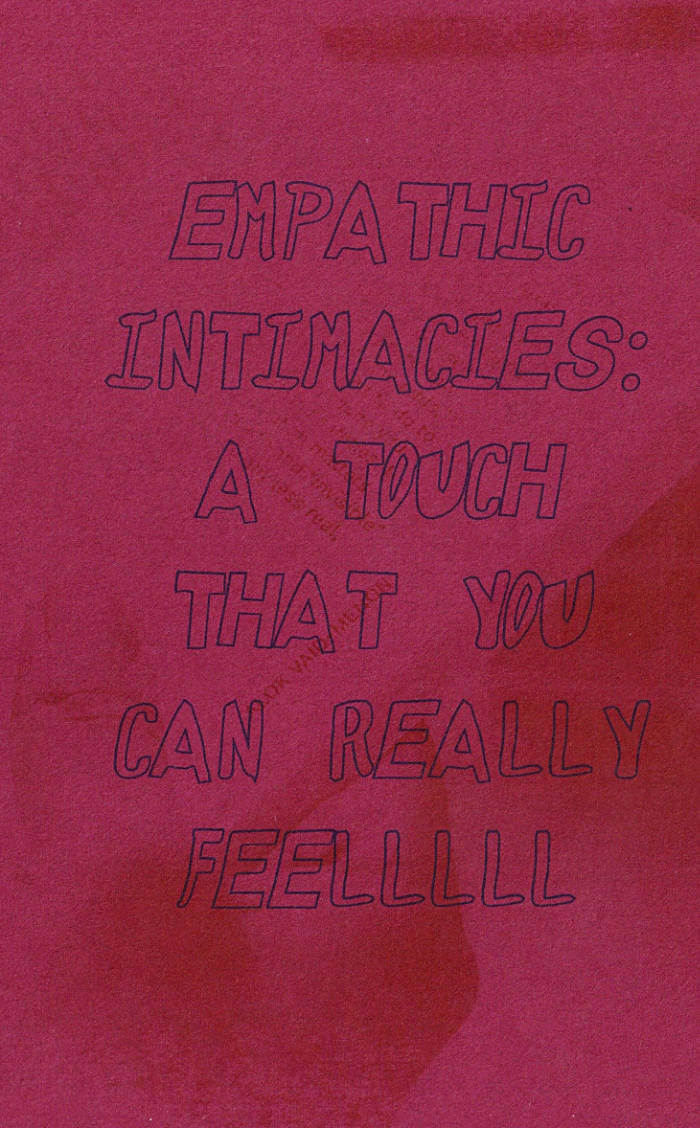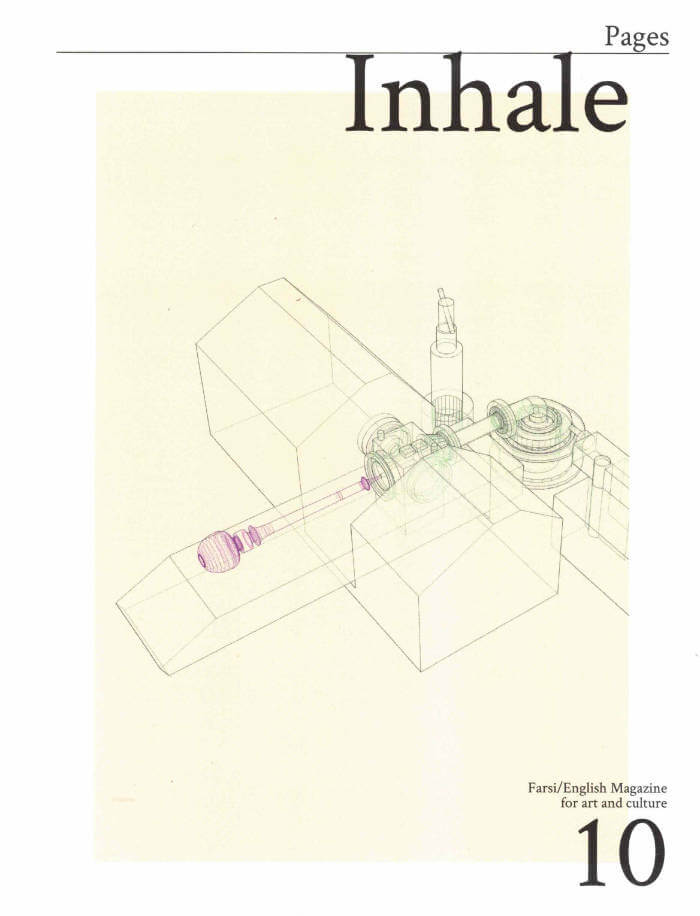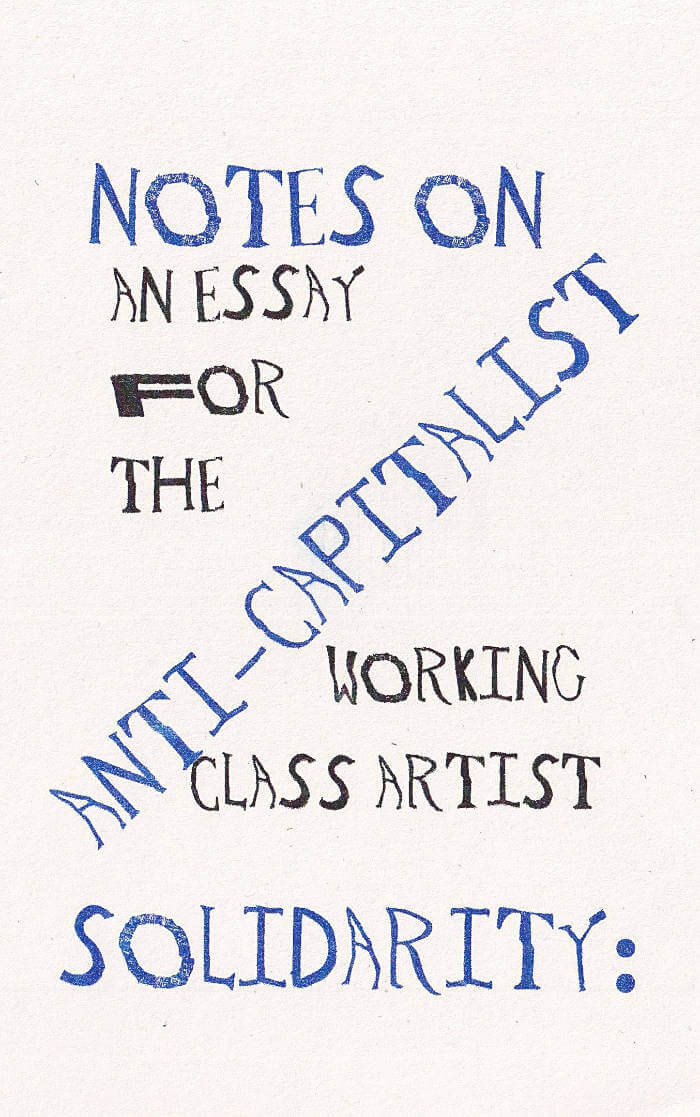
Notes on Anti-capitalist Solidarity: An Essay for the Working Class Artist
Notes on Anti-capitalist Solidarity: An Essay for the Working Class Artist was first commissioned by former Artspeak Director/Curator Bopha Chhay and published as part of their BEACON series.
In the essay, Oakley states:
Why do so many artists, designers, and low-wage workers still embrace this system of exploitation without question? Are we so compromised by the false promise of success that we have become numb to the exploitation we endure for the chance of being in a place to exploit others ourselves? Do we want to be in this position? And if not, what can we do to change this?
BEACON is a series that examines how artists’ commitment to wider social movements informs contemporary artistic practice. It will feature texts by artists whose practices engage with language and visual arts. Former Artspeak Director/Curator Bopha Chhay edited the series.
44 pages ┊ Language: English
